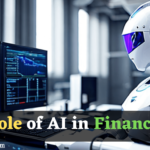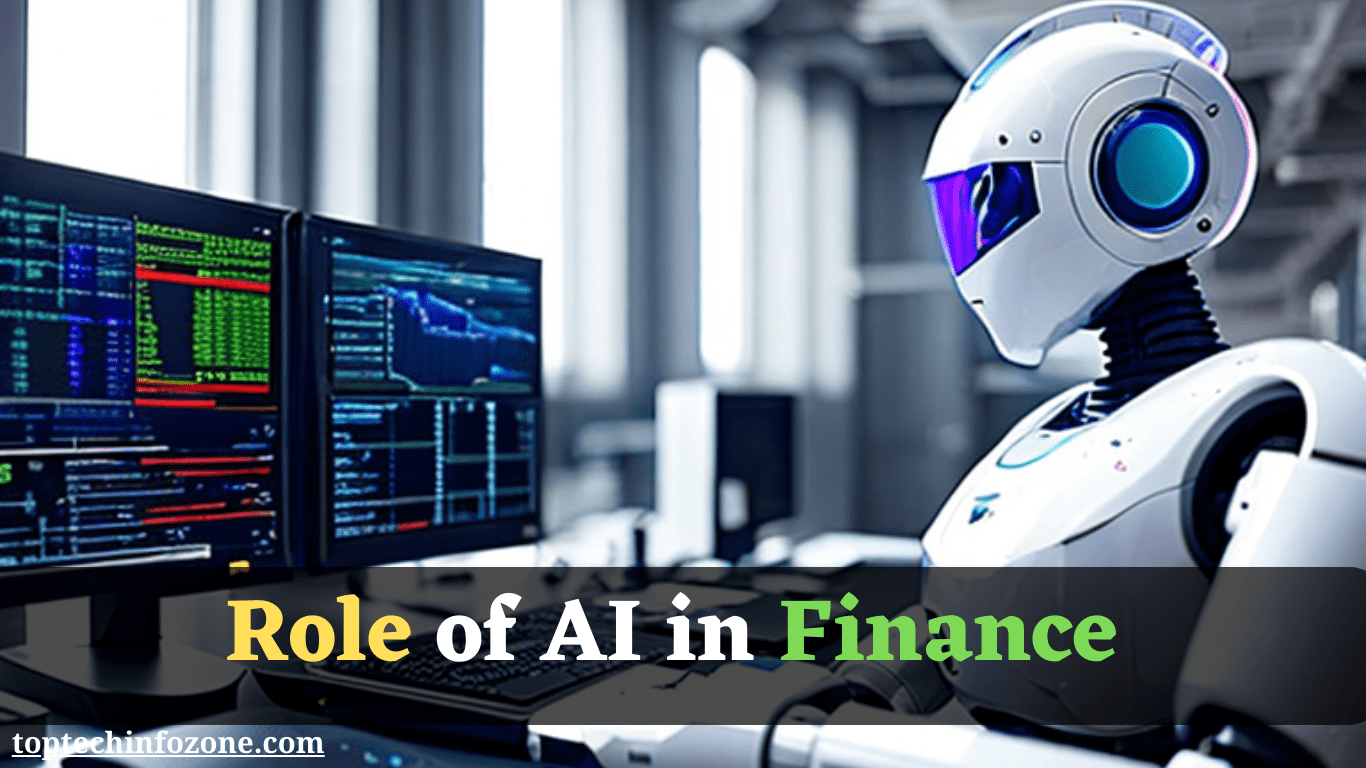Explore how AI in finance is transforming the industry through predictive analytics and fraud detection. Discover the power of artificial intelligence in enhancing security and decision-making processes.
AI in Finance: Predictive Analytics and Fraud Detection has become a game-changer in the financial industry. As technology continues to evolve, the integration of artificial intelligence has paved the way for remarkable advancements in predictive analytics and fraud detection. In this comprehensive article, we’ll delve into the captivating world of AI-driven financial solutions that are reshaping the landscape of banking, investment, and risk management. From understanding the basics to exploring real-world applications, you’ll gain insights into how AI is fostering accurate predictions and safeguarding against financial fraud.
Introduction: Embracing the Future of Finance
In today’s rapidly evolving digital era, the financial sector is undergoing a profound transformation fuelled by the capabilities of AI. With AI in Finance: Predictive Analytics and Fraud Detection, institutions are able to harness the power of data-driven insights to make informed decisions, optimize operations, and mitigate risks. The convergence of AI and finance is not just a technological advancement but a paradigm shift that promises greater efficiency, security, and customer satisfaction.
The Role of AI in Finance: Predictive Analytics and Fraud Detection
Artificial intelligence has found a profound role in the finance industry, particularly in predictive analytics and fraud detection.
The integration of AI algorithms allows financial institutions to analyse vast amounts of historical data and identify patterns that human analysis might miss.
Through machine learning and data modelling, AI systems can predict market trends, customer behaviour, and potential fraudulent activities with remarkable accuracy.
Leveraging Predictive Analytics for Informed Decisions
Predictive analytics powered by AI is revolutionizing decision-making in finance.
By analysing historical data and considering various influencing factors, AI systems can generate accurate forecasts for market trends, stock performance, and economic indicators.
This information empowers investors, analysts, and financial institutions to make well-informed choices, leading to more successful outcomes.

AI in Finance: Detecting Fraud with Unprecedented Precision
Fraud detection is a critical aspect of the financial industry, and AI has proven to be an invaluable ally in this endeavour.
Traditional methods of fraud detection often fall short due to the complexity and sheer volume of transactions.
AI systems, however, excel in identifying irregularities and anomalies in real-time, minimizing the risk of fraudulent activities. By continuously learning from new data, AI algorithms evolve to stay one step ahead of fraudulent tactics.
Real-World Applications of AI in Finance: Predictive Analytics and Fraud Detection
1. Algorithmic Trading: Enhancing Investment Strategies
In algorithmic trading, AI analyses market data and executes trades at optimal times. This technology-driven approach minimizes human bias and emotion, resulting in more precise investment strategies.
2. Credit Scoring and Loan Approval: Improving Access to Credit
AI-powered credit scoring models consider a broader range of data, enabling lenders to assess creditworthiness more accurately. This opens doors to credit for individuals with limited credit history.
3. Anti-Money Laundering (AML): Strengthening Compliance
AI algorithms scrutinize transactions for unusual patterns, aiding in the detection of money laundering activities.
This not only ensures compliance with regulations but also safeguards financial systems.
4. Customer Service and Chatbots: Enhancing User Experience
Chatbots powered by AI provide instant customer support, answer queries, and facilitate transactions. This enhances customer satisfaction by offering quick and efficient assistance.
5. Risk Management: Mitigating Potential Losses
AI-driven risk management models assess the likelihood of default, market volatility, and other risks, enabling proactive measures to minimize potential losses.

Exploring Deep Learning and Neural Networks
Deep learning and neural networks are at the forefront of AI advancements.
These technologies are enabling AI systems to learn and adapt from vast datasets, making them crucial for enhancing predictive analytics and fraud detection in finance.
AI in Autonomous Vehicles: Advancements and Challenges
Autonomous vehicles are a prime example of AI’s real-world application. Delve into the advancements and challenges of AI-driven autonomous vehicles and their implications for the future of transportation.
Machine Learning Algorithms: A Comprehensive Overview
Machine learning algorithms are the backbone of AI systems. Understanding the various algorithms, from supervised to unsupervised learning, provides insights into the complexity and diversity of AI technology.
The Role of AI in Cybersecurity and Threat Detection
Cybersecurity is a growing concern in the digital age. Discover how AI is bolstering cybersecurity measures by detecting threats, identifying vulnerabilities, and safeguarding sensitive data.
AI and Robotics: Transforming Industries
The fusion of AI and robotics is revolutionizing industries such as manufacturing, logistics, and agriculture. Uncover the potential of this synergy to enhance efficiency, productivity, and innovation.
Chatbots and Virtual Assistants: Enhancing Customer Experience
Chatbots and virtual assistants are enhancing customer experiences across various sectors. Explore how AI-powered chatbots streamline interactions, provide instant support, and elevate customer satisfaction.
Conclusion: Pioneering a New Era in Finance
AI in Finance: Predictive Analytics and Fraud Detection marks a pivotal moment in the financial industry’s evolution. The synergy between AI and finance is ushering in a new era of data-driven decision-making, heightened security, and improved customer experiences. As AI technologies continue to evolve, the possibilities for innovation are limitless, promising a future where finance is not just about transactions but about intelligent insights that drive prosperity.
Frequently Asked Questions:
AI employs advanced algorithms to analyse large datasets and identify patterns associated with fraudulent activities. This enables early detection and prevention of fraudulent transactions.
While AI enhances decision-making by providing data-driven insights, human expertise remains crucial for interpreting complex situations and making strategic choices.
Real-time fraud detection using AI prevents unauthorized transactions as they occur, minimizing financial losses and enhancing overall security.
No, AI benefits financial institutions of all sizes. Smaller institutions can leverage AI-powered tools to streamline operations, make better lending decisions, and improve customer experiences.
AI continually learns from new data, allowing it to adapt to emerging fraud tactics and develop countermeasures to protect financial systems effectively.
Financial institutions adhere to strict data privacy regulations and employ robust cybersecurity measures to ensure the confidentiality and security of customer data.
Related Posts:
- Unlocking Ethical Implications of AI: Unveiling Unforeseen Consequences (2023)

- AI in Finance: Predictive Analytics and Fraud Detection (2023)

- Chatbots and Virtual Assistants: Enhancing Customer Experience (2023)

- AI and Robotics: Transforming Industries (2023)

- The Role of AI in Cybersecurity and Threat Detection (2023)

